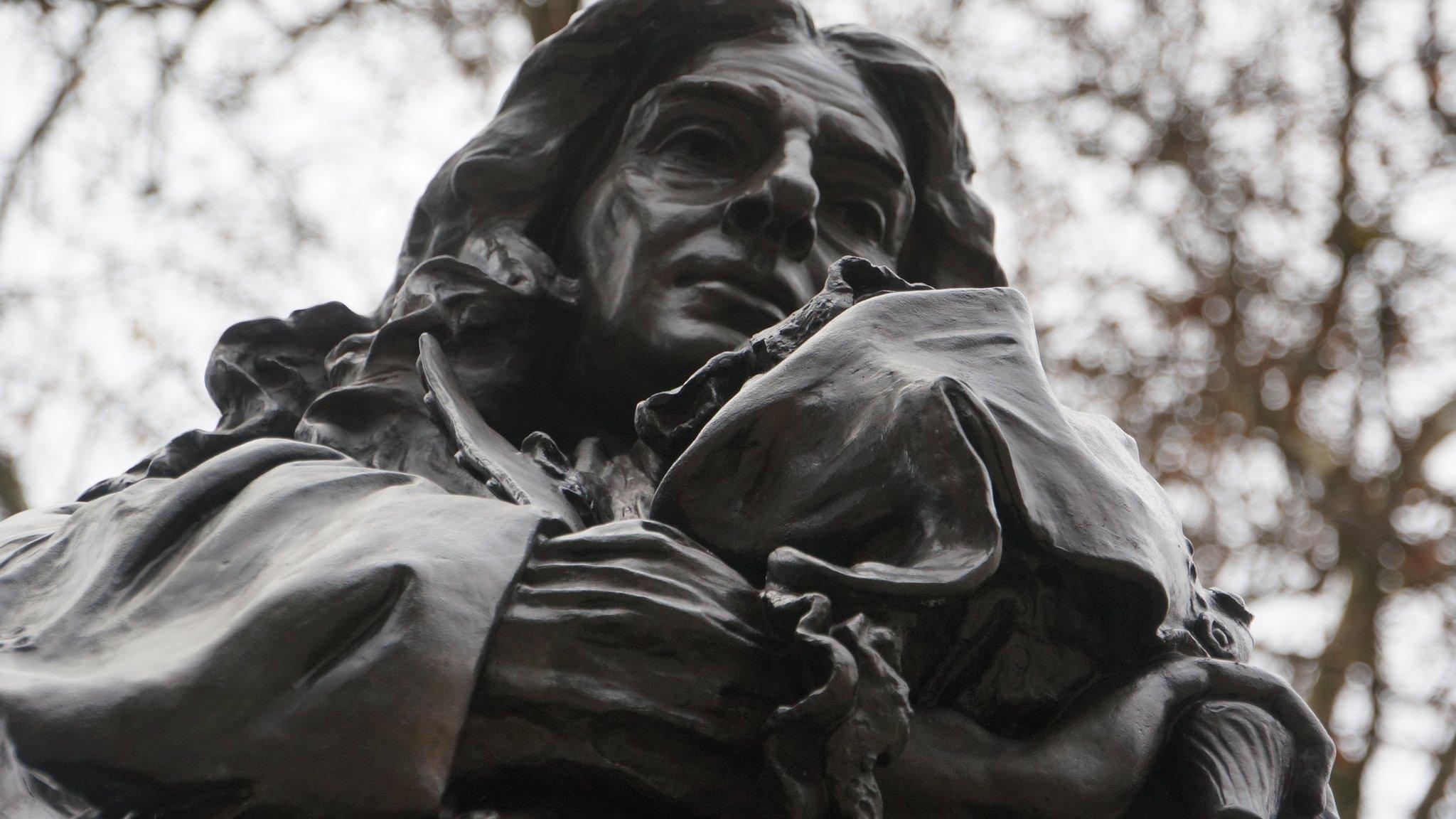Bristol statue toppling 'starting point' in assessing city's slave heritage
- Published
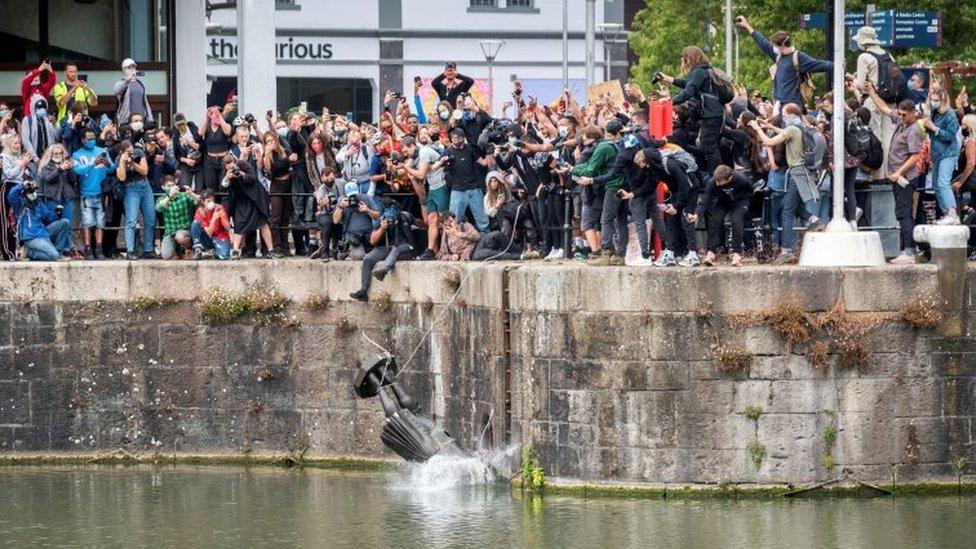
The Project Truth report is being launched after the Edward Colston statue was toppled and thrown into Bristol's harbour
The toppling of the Edward Colston statue is a "starting point" in assessing Bristol's slave trade legacy, its deputy mayor has said.
Cllr Asher Craig set up the Legacy Steering Group which is launching the Project Truth report on Tuesday.
It sets out the action Bristol's African heritage communities want regarding memorialisation and legacy.
Project coordinator Cleo Lake said the report was an "important step" in "realising the city we want".
The report looks at the history of Bristol and considers feedback from African heritage communities and how the ramifications and legacies of Bristol's involvement in the Transatlantic Trafficking and Enslavement of Afrikans (TTEA) should be recognised in the city.
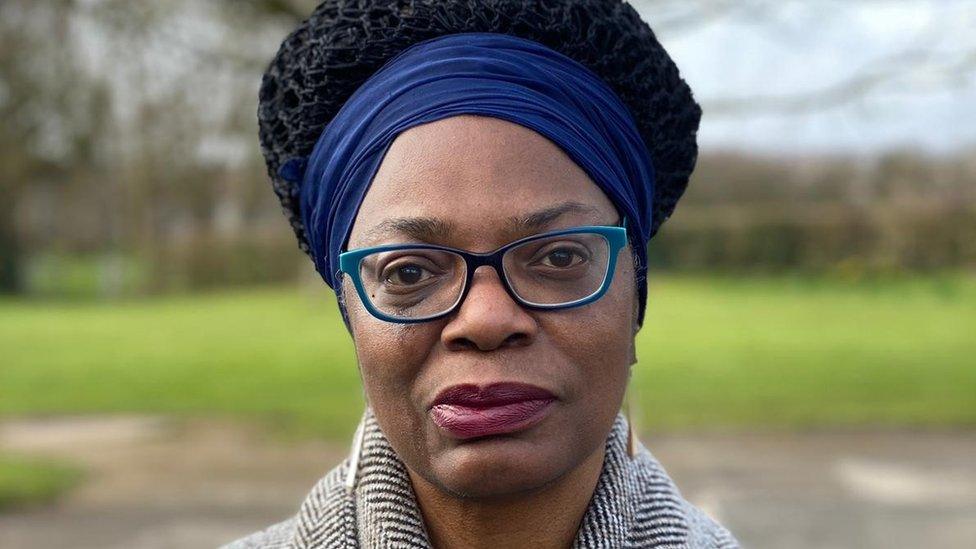
Deputy mayor Asher Craig set up the Legacy Steering Group which has produced the report
Speaking to Politics West, Ms Craig said: "For many, many years we have had campaigners and stake holders in the city who have been looking at how we can address the issue of the trade in enslaved Africans' in Bristol.
"Two years ago I set up the legacy steering committee, that is driven by people of African heritage communities, they are in the majority, in terms of the membership of that group.
"Over the last six months we have been doing some research and talking to people of African and Caribbean heritage about legacy, memorialisation and what that means to them.
"I always say that [the toppling of] Colston is a starting point."
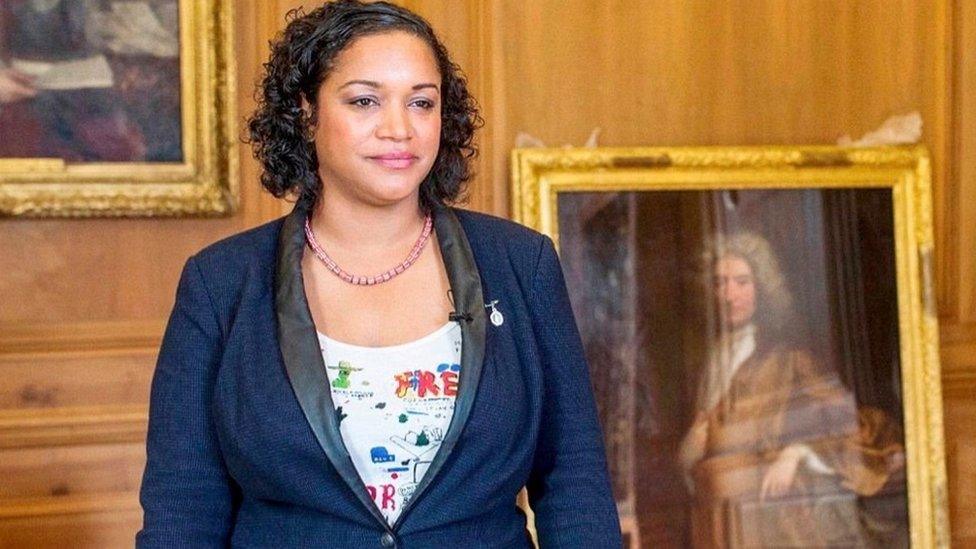
Cleo Lake described the report as "pioneering"
Ms Lake, a former Green councillor who was appointed as project coordinator, added: "There are a number of recommendations, about 15 in total under five headings, which talk about our identity, which talk about the need to reform education, have our own centres of excellence, so it is very wide ranging, covering health, education and all the things in-between.
"This is something that is for African heritage communities, the report that is written is also an education document, and surprisingly this sort of consultation has not taken place before so it is quite pioneering.
"So we hope that this will be an important and significant step on the road to realising the city that we want."

Follow BBC West on Facebook, external, Twitter, external and Instagram, external. Send your story ideas to: bristol@bbc.co.uk , external
Related topics
- Published28 August 2021
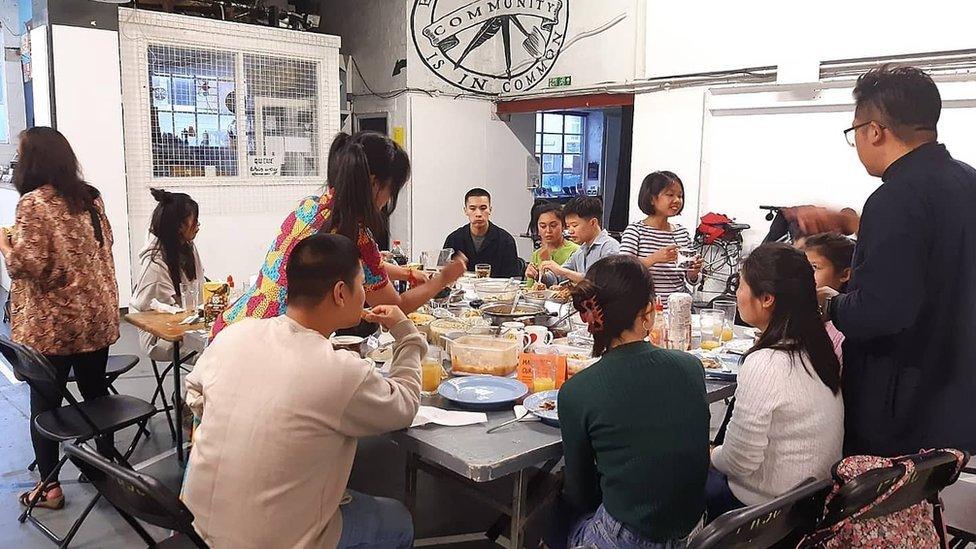
- Published24 May 2021
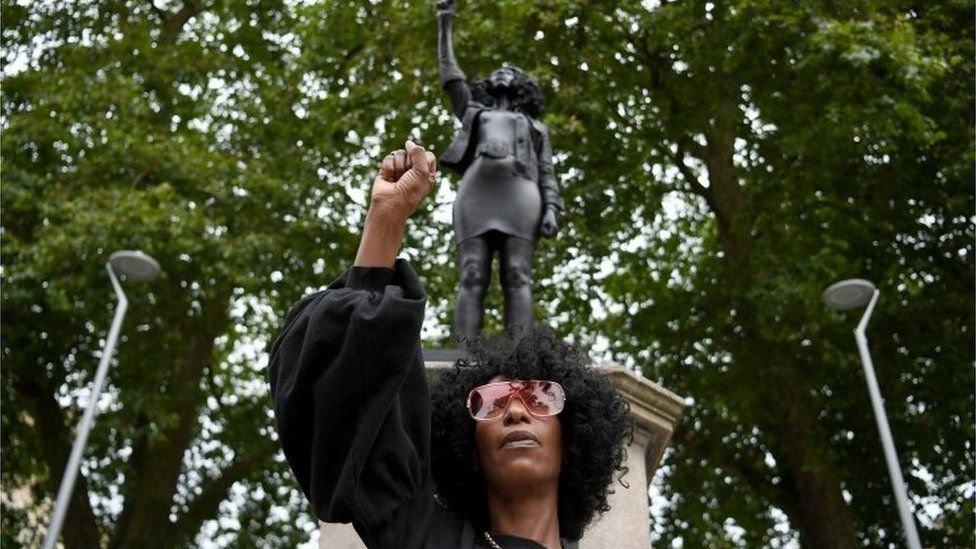
- Published25 September 2020
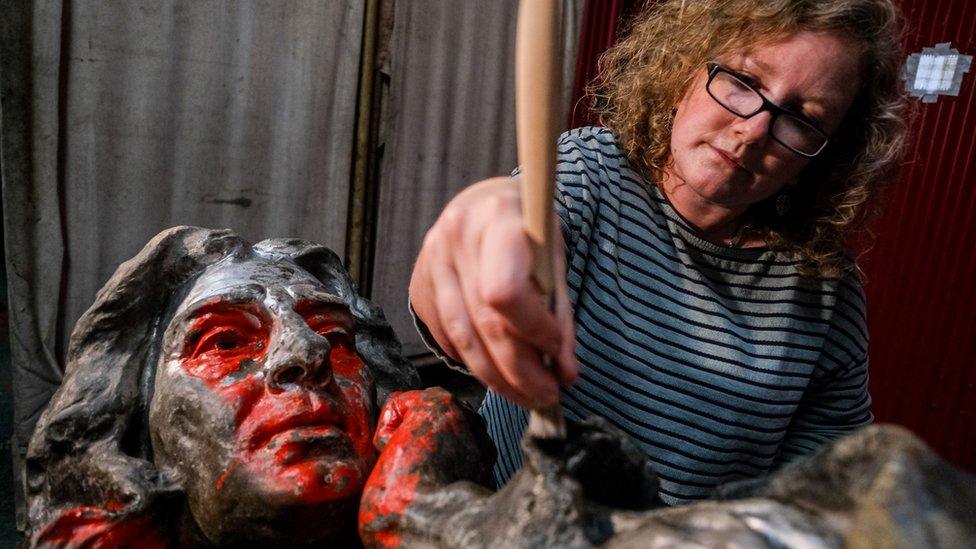
- Published8 June 2020
